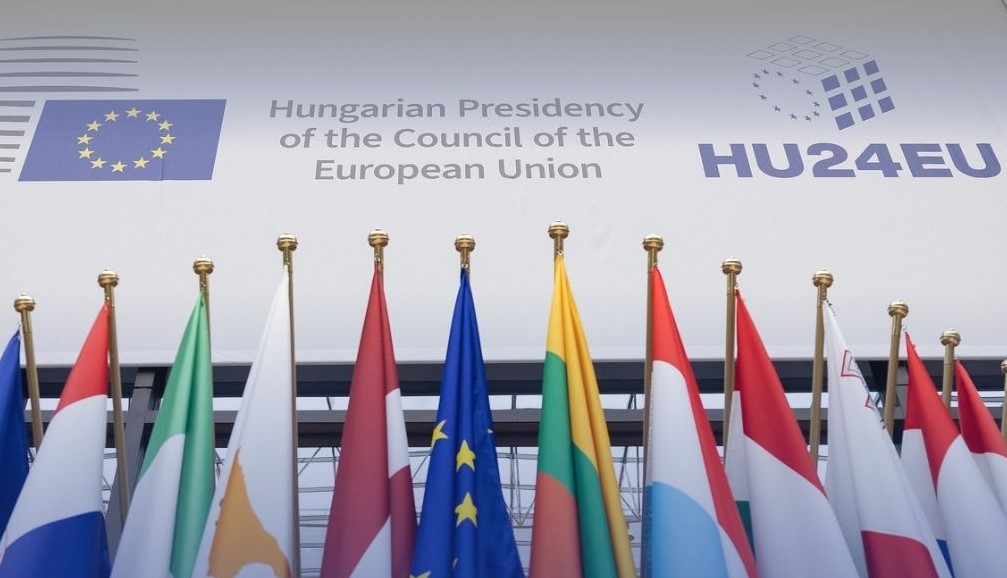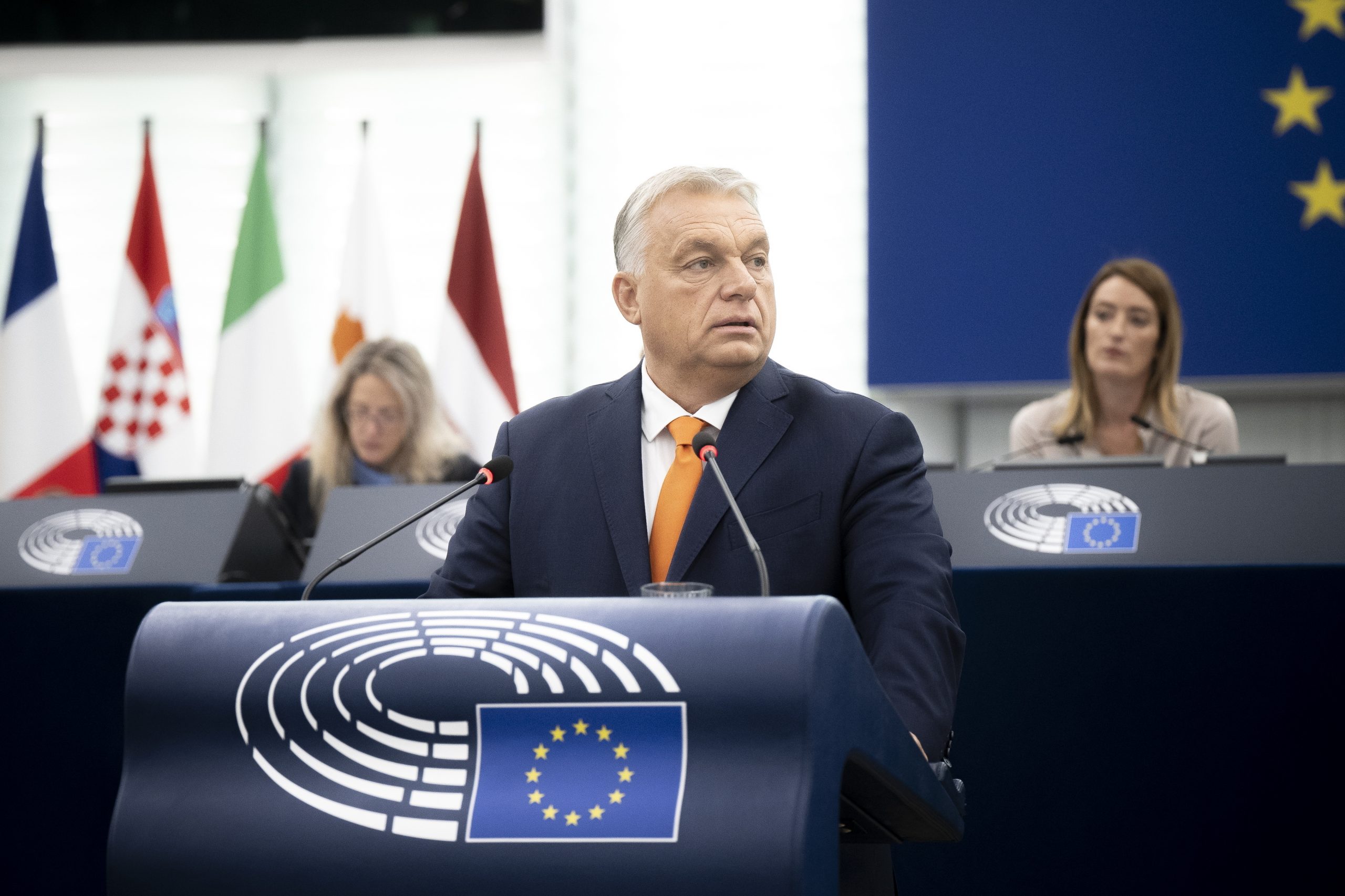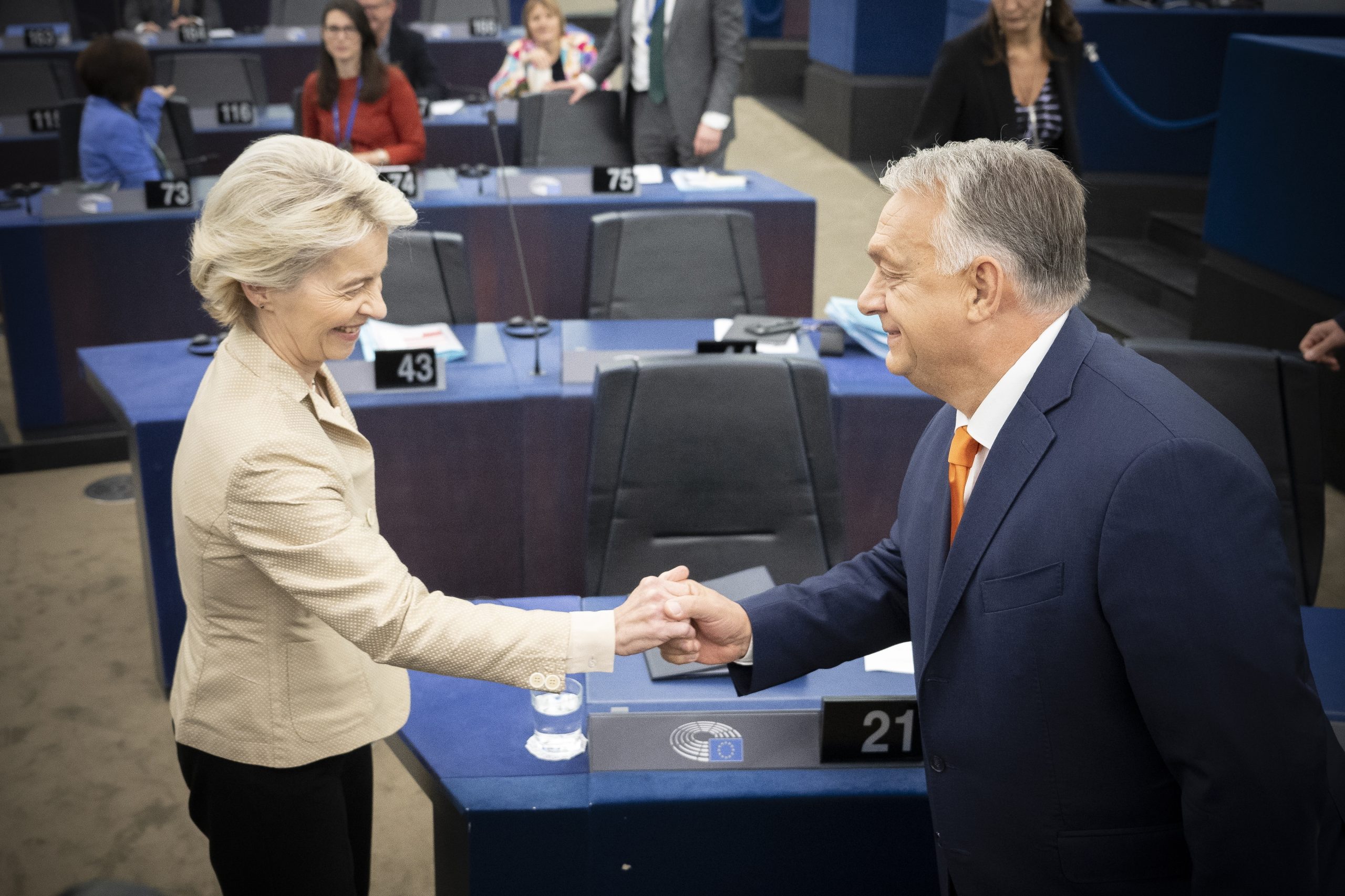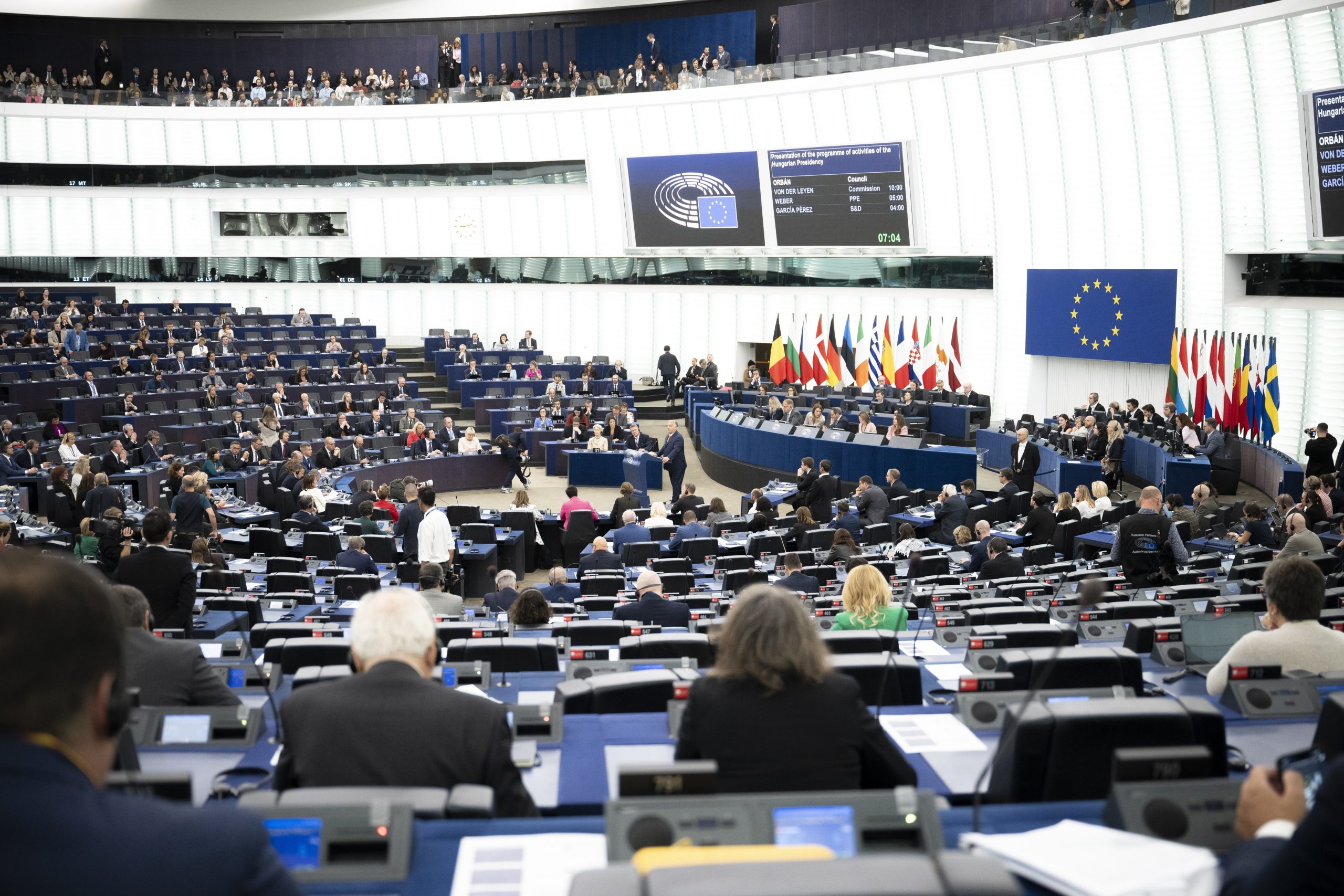
Minister Bóka stressed the need for Europe to remain competitive with global powers.Continue reading

“I am here to sound the alarm,” Prime Minister Viktor Orbán said at a meeting of the European Parliament in Strasbourg on Wednesday, when he presented the program of the Hungarian Presidency of the Council of the European Union.
The Prime Minister recalled that Hungary holds the rotating presidency of the Council of the EU for the second time since 2011. He added that this was also the second time that he had personally taken on this task. “The presidency was not easy then either, but the work is much more difficult today than it was then because the situation in the EU is much more serious than in 2011, and perhaps more serious than ever before in the history of the EU,” the politician noted.

Prime Minister Viktor Orbán and Ursula von der Leyen, President of the European Commission. Photo: MTI/Miniszterelnöki Sajtóiroda/Benko Vivien Cher
The difficulties include the fact that there is a war in Ukraine, that serious conflicts are raging in the Middle East and Africa, which also affect Europe, and that each of these conflicts carries the risk of escalation. The Prime Minister also said that the migration crisis is threatening to blow up the Schengen area. At the same time, Europe is losing its global competitiveness, Viktor Orbán added, and the EU is facing decisions that will determine its own fate.
When presenting the program of the Hungarian EU Presidency, the Prime Minister emphasized that
the decisions must be made by the EU Member States and the institutions, not by the Hungarian presidency.
The presidency will address problems and make proposals for the peace, security, and prosperity of the European Union.
@PM_ViktorOrban: The European Union must change. And we, through the work of our #HU24EU presidency, want to be the catalyst for this change. pic.twitter.com/m9cPisLFKo
— Zoltan Kovacs (@zoltanspox) October 9, 2024
On the issue of competitiveness, Orbán noted that the EU’s economic growth has been consistently slower than that of the United States and China over the last two decades, that the EU’s productivity is growing more slowly than that of its competitors, and that its share of world trade is falling.
Companies in the EU face electricity prices two to three times higher than in the United States, and natural gas prices are four to five times higher here,
he listed. The politician pointed out that half of European companies see energy costs as the main barrier to investment, with energy-intensive industries experiencing a 10-15% drop in production.
The green transition alone is not a solution to this problem, because even if the targets for the use of renewable energy sources are met, all analyses show that the proportion of operating hours in which fossil fuels determine energy prices will not fall significantly by 2030, he said. The European Green Deal is based on the creation of new green jobs. However, the sense of the initiative will be called into question if decarbonization leads to a decline in European production and job losses, Orbán stressed, pointing out that one of the most glaring examples of the EU’s lack of planning is the automotive industry, where climate policy is being implemented without an industrial policy.

Photo: MTI/Miniszterelnöki Sajtóiroda/Benko Vivien Cher
Mr. Orbán pointed out that the main reason for the productivity gap between the EU and the US is digital technology. Added to this are unfavorable demographic trends:
Figures show that migration is not compensating for the natural population decline in the EU.
He said that the Member States expect the European institutions to act quickly and decisively in this area. They expect the reduction of administrative burdens, the easing of over-regulation, the provision of affordable energy, a green industrial policy, the strengthening of the internal market, the capital markets union, the expansion of trade policy and a trade policy that increases connectivity instead of blocking it. Referring to the Draghi report, he cited the EU’s dynamically developing battery industry as a success. It seems that targeted and strategic interventions can be successful and beneficial for Europe, he noted.
The Prime Minister stated that
the Hungarian presidency is looking for reasonable solutions to common European problems.
He highlighted that the European security and defense policy must be institutionalized and that the presidency sees the best way to achieve this is to strengthen the European defense industry and technology base. He described the enlargement of the EU as a priority issue and called the acceleration of the accession of the Western Balkan states a key issue for European security. The PM called for the creation of a competitive European agriculture and stated that it was essential to reduce the development gap between regions.
@PM_ViktorOrban: It is clear, the current EU asylum system is not working.
❌ Illegal migration in Europe has led to the reinforcement of anti-Semitism, increased violence against women, and homophobia. These are the consequences of migration. pic.twitter.com/TbRpoGnUKd— Zoltan Kovacs (@zoltanspox) October 8, 2024
The head of government explained that the EU’s asylum system was not working today and that illegal migration in Europe had led to an increase in anti-Semitism, violence against women, and homophobia.
The failure of migration policy has led to many ember states trying to create opportunities to exit the asylum system,
and that illegal migration and security concerns have led to the permanent and comprehensive reintroduction of border controls. It was time to address this issue at the highest political level and discuss whether the political will to make the Schengen area really work could be restored, he underlined, proposing on behalf of the Hungarian presidency the establishment of a system of “Schengen summits.” Orbán added that the Hungarian presidency also proposes that Bulgaria and Romania should fully join the Schengen area before the end of the year.
Leader of the main Hungarian opposition party (TISZA), Péter Magyar, addressed Orbán personally for the first time, reacting to the EU Presidency program. He agreed with the Prime Minister on the protection of external borders and on the need to end the war. However, he pointed out that there are a number of domestic problems in Hungary, such as the public debt, utility prices, and education.
The debate was marred by astonishing personal attacks from opponents of Orbán, members of left-wing factions of the EP, accusing him of a range of issues from corruption or suppression of the freedom of speech, even comparing him to a movie villain. Arguably one of the most disturbing contributions came from Italian far-left MEP, Ilaria Salis, accused of being a member of an extremist antifa-group, who randomly attacked innocent citizens and foreign tourists on Budapest’s streets, causing serious head injuries. She was only released from detention in a Hungarian prison after gaining immunity from prosecution through a mandate in the EP.
After the Hungarian Prime Minister’s speech, many MEPs expressed their support on the platform X. Jorge Buxadé, the Leader of VOX Delegation in the European Parliament, also spoke in support of Orbán, stressing that Hungary’s example should be followed in “protecting borders, children’s innocence, competitiveness, and security.”
“The speech by Orbán is a breath of fresh air in this Camera”.
️ @Jorgebuxade calls, in front of Viktor Orbán and Von der Leyen’s handbag (she fled from the debate), to follow Hungary’s example in protecting borders, children’s innocence, competitiveness, and security. pic.twitter.com/Jsidcu0yf1
— VOX Europa (@VOX_Europa_) October 9, 2024
Via MTI; Featured image via MTI/Miniszterelnöki Sajtóiroda/Benko Vivien Cher